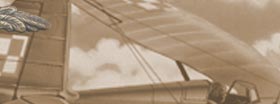Parachuting into Poland, 1944: A memoir of a Secret Mission with Józef Retinger.
By Marek Celt, McFarland & Co. Inc,
ISBN 978 0 7864 7460 8
A personal memoire on the secret mission with Józef Retinger sheds light on many areas ranging from the mission, Retinger’s rationale for the hazardous trip and the complex politics between the government in exile, Britain, Soviet Russia, and the Delagature in Poland. Security and how the AK managed to keep the mission safe was also a key issue due to the age and reputation of Retinger. It is an outstanding memoir whose accuracy in detail and the war-time analysis can be cross referenced with documents and reports in the National Archives (HS9-1137-6), Retinger’s memoirs and supplementary biographies.
The opening chapter, the ‘Introduction’ by Jan Chiuk-Celt provides the background and context of his father’s memoirs surrounding his early life, service, and his role in OPERATION SALAMANDER whose original manuscript was edited by the eminent Polish historian, Dr. Wojcieh Franzik. Apart from giving an invaluable insight into Retinger’s personal life and an outline of Marek’s achievements and family background, it also explains both individual’s beliefs and behaviours that would come into greater play once the operation was underway.
Chapter One: Prologue reminds us that the memoirs represent the wartime scenario and rationale covering the difficulty in developing an active political strategy and rationale to the Allies not to give up on Poland. The impact of the Tehran Conference 22-26 November 1943 was a body blow to the Poles, AK and eventually those fighting in the West. The ‘First Ally’ had been betrayed with little resistance by the Allies or deep consideration at the time to what would follow in post-war Europe that inflicted social, political, and economic suffering for decades to come. As Jan Chiuk-Celt points out, the hypocrisy and ‘donating’ half of Eastern Europe to Stalin’s communism without much resistance was a shock then as it is now decades later.
Chapter Two deals largely with the briefings and assimilation of political stances by various Polish political parties, individual politicians within the government in exile and notably the British Government policy change that Marek and Retinger would face once they were in Poland. Prime Minister Mikołajczyk (Stem) was deeply aggrieved by the outcome of the Tehran Conference and its impact on the future of Poland that required the mission to take place since the political situation would be difficult to digest by the Chief Delegate of the Home Army. With the Soviet Army already close to eastern Poland and the NKVD inflicting mass deportations, mass arrests and summary executions to ensure the Soviet’s dominance placed even greater pressure on the mission. To explain Churchill’s stance on the Curzon Line needed Retinger’s skills and intellect to overcome political inertia since there were few options for the Poles. Marek’s flight to Bari in Italy via Gibraltar, Algier and Tunis reminds us of the logistics needed to transport Marek (aka Sulima) on their secret mission and his meeting with Retinger (Captain Paisley) who was already in Bari.
Chapter Three covers the gearing up for the operation in Bari and the frustration in the delays that enabled to the two to get to know each other in extraordinary circumstances. It is the ‘sojourn’ in Bari that gave Marek insight into the complexity of Retinger’s life, achievements, politics, and beliefs that would eventually keep him from harm during the mission and ultimate survival. It was also here that Ratinger enlightened Marek with his views for a united post-war Europe that at the time seemed a long distant dream. The waiting game took up March 1944 enabled a deep understanding in music tastes between the two men to bond over despite their anger at the cancelled flights and the level of boredom and why Retinger refused parachute training. One day when travelling back from the base in Bari they were intercepted by British Military Police. The party dressed in Polish civilian clothes with fake German identity papers required some explaining and although serious, were able to laugh the incident off.
Chapter Four is entitled 4.4.44 and covers their flight from Bari to just outside Warsaw and a mission perilously close to being aborted due to the Soviet advances in the east and entry into Hungarian territory. The detail within the chapter of the route covering the Adriatic Sea, flying over the Danube or the emotions in viewing the Tatra Mountains or the glint of lake Morskie Oko from above contrasts deeply with observing the pounding of Budapest or evading a German night-fighter between Radom and Warsaw. The drop and the perfect collection of the party and supplies by the AK waiting reception committee made Retinger the oldest operational parachutist and experienced at first hand the organisational skills of the AK that would begin to shape the rest of the operation. Retinger’s confession to suffering from ‘night blindness’ also opens up a characteristic and degree of humility perhaps overlooked by others.
Chapter Five covers their trip from the DZ to Warsaw and their handling by AK couriers with relative ease despite two hundred armed policemen searching for them. At last, on Polish soil, their senses absorbed the evolving picture of everyday life in the wartime capitol. The chapter gives up much detail into the AK’s activities and how safe houses operated and clandestine meetings arranged and conducted. The security and secrecy surrounding Retinger developed into a nightmare for Marek as his ‘minder’ to manage due to Retinger’s larger-than-life personality, mission’s role and perhaps a poor understanding of field security. While Marek had numerous meetings and briefings to attend to and his personal mission to develop a ‘northern road’, the activities and whereabouts of Retinger remained of great concern. Factions within the AK and Polish Intelligence who believed Retinger to be a British spy or conspirator held a deep distrust that transpired into an assassination plot making the mission more complex.
Chapter Six explores the disappearance of Poland’s Jewish community and Marek’s role in liaison with the Bund (the Jewish Socialist organisation) and the Jewish National Committee. These discussions highlighted that despite the annihilation starting in 1942 no major external help was forthcoming with pleas from multiple sources being largely ignored. The assistance of the local Polish population was limited due to the circumstances surrounding them and the underground army. The impact of the ruined ghetto and hearing at first hand the mining of houses or systematic murder within the ghetto had a lasting impact on Marek even in later life.
Chapter Seven provides a detailed account of Retinger’s failed attempt to leave Poland in Operation Wildhorn II. The circumstances of Retinger being left behind are both sinister and tragic. On fleeing the DZ Retinger had an accident and needed to return to Warsaw from Krakow, a trip that put his personal security and health at risk. The accident was sufficiently serious that Marek changed his plans to smuggle Retinger under the alias of Józef Brzoza into a sanitorium, the Omega Clinic in Warsaw. Somehow word slipped out on the state of Retinger’s health where upon a procession of visitors to check on ‘uncle’ again put his safety at risk forcing Marek with the help of the AK to move him to a more remote convent of the Barefoot Carmelites. Colonel Rudkowski (Rudy) was a member of Section Two of the Home Army (Intelligence) who had usurped his position to replace Retinger’s on the extraction flight. Rudy’s explanation later back in London lacked substance and the notion of Salamander being left hints at an assassination plot. With Soviet advances in the east and the impending Warsaw ‘Rising 44 plans drawing closer, anti-communist propaganda by the AK placed greater stress to the mission and the need for the Chief Delegate to understand and synthesise the Allies position over the Curzon Line and the future of Poland.
Chapter Eight covers their escape from Warsaw by train to Krakow with Retinger as a patient due to his poor health. Although the train trip was relatively uneventful, exiting the station in Krakow presented transport logistical problems to circumvent the Gestapo and a German dragnet around the station area. A courier managed to transfer them by carriage across the Dunajec River towards the village of Łęg via side roads and tracks to their resting point in the village of Zdrochec. Wildhorn III was of major historic and military significance. Within their party was Captain Jerzy Chmielewski and Colonel Czesław Miciński who carried the diagrams and debris of V2 rockets. As the eastern front moved closer to them, rear guard action by the Germans posed a serious risk to them, their hideout, and the chosen field that at the last moment had a detachment of German troops close to the LZ boundaries. While the landing was almost perfect, the chosen field was waterlogged and the flight was almost aborted, however due to the gritted determination of the plane’s crew and reception committee, the Dakota finally left for Brindisi with no functional brakes and a landing gear that had been difficult to retract until over the Tatra Mountains.
Chapter Nine End of the Song in part wraps up in detail the completion of the mission and gives recognition to Marek’s earlier exploits since the chapter title is a reference to Concerto for Four Colts – his earliest mission OPERATION JACKET. The return trip, like his departure from the Britain had surprising twists where the planned flight to Gibraltar was diverted to Rabat in Morocco where he met with Prime Minister Mikołajczyk, Stanisław Grabski (Chairman of the National Unity Council), Tadeusz Romer (Foreign Minister), Colonel Markowski and Colonel Harold Perkins (SOE). The meeting was less about a debriefing of the mission, but Mikołajczyk’s mission to Moscow and how to deal with the puppet Lublin Committee of the Soviet’s. Concerns that Mikołajczyk would be portrayed as a traitor despite OPERATION SALAMANDER and how he would fight for the retention of eastern Poland. Unfortunately, history would not go in Poland’s favour and the political analysis by Marek was highly relevant at that time that contemporary historians need to remain aware. Marek and Retinger’s arrival in Britain coincided with the Uprising and Retinger’s confinement to bed in the Dorchester after a failed assassination attempt through poisoning. While many dignitaries visited to pay their respects such as Anders, the arrival of Colonel Rudkowski (Rudy) and his explanation of the fiasco in his role in WILDHORN II sheds little light on the perpetrators for the confusion or assassination attempts. As Marek penned his final report, the Warsaw Rising was collapsing and finally the captured combatants were treated correctly under the Geneva Convention as combatants and not shot as ‘bandits’ by the Gestapo> or SS-Sturmbrigade Dirlewanger (Dirlewanger Brigade) who had already massacred over 100,000 of Warsaw’s inhabitants. Despite the desperate state of Poland, the iron fist of Sovietisation and the loss of the Allies political and military support, Marek found solace through “Don’t lose hope. Stay strong. No sacrifice can be in vain – especially a sacrifice so great” (Celt, 1944 p.177).
Readers will come away with an invaluable insight into Retinger and his mission to Poland that archived reports fail to really reflect the philosophical aspects of the man. Marek’s account and analysis of the deteriorating political situation lends credit to Retinger’s exploits and the conundrum Mikołajczyk faced.
The training and operations of the Cichociemni (sometimes called the Silent Dark Ones or the Unseen and Silent) are still studied by special forces around the World to this day.
Julian Hoseason, editor polandinexile.com
Top of Page





